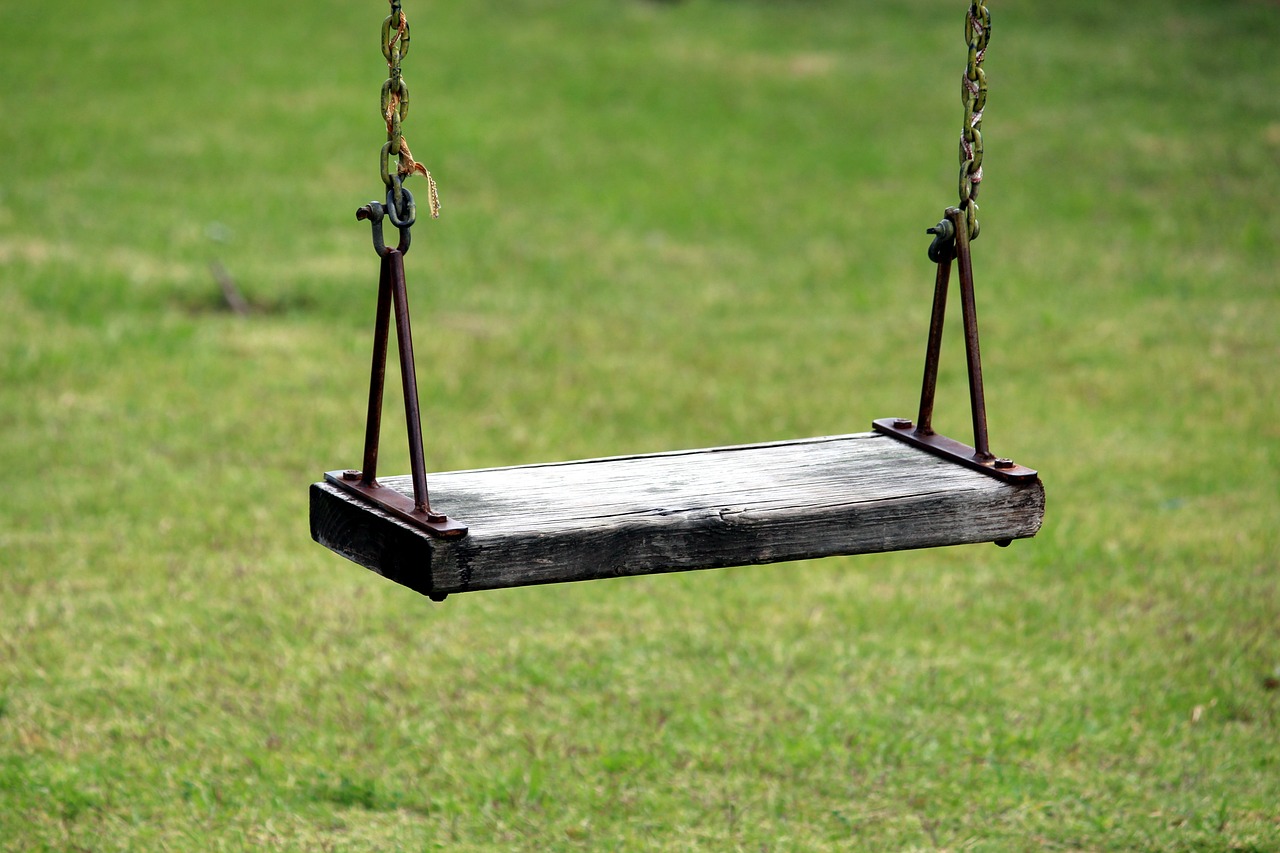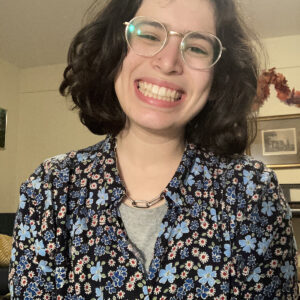Starting in 2018, New Voices has offered year-long, paid fellowships for Jewish college students. During the 2022-23 academic year, New Voices partnered with progressive Jewish media outlets to offer joint fellowship positions at TC Jewfolk, The Jewish Women’s Archive, and Judaism Unbound. As this year comes to a close, Judaism Unbound Fellow Catherine Horowitz reflects on her experiences owning and overcoming imposter syndrome (with a little help from Moses).
As I end my year with the Jewish Media Fellowship, I find myself thinking back to one evening last May. I was sitting on the swings with my friend from Oberlin, talking about academia and our futures – she was about to get a Master’s in English.
“I don’t think I could actually get a job as a professor,” I said. “I don’t think I’m as smart as the other English majors.”
“What makes you say that?” she asked. It was getting darker. I couldn’t see her swinging next to me. The darkness made me feel like I could speak more bluntly.
“They always have so much more to say than me,” I said. “They make good points I could never have thought of myself.”
Her response came quickly. “It doesn’t mean they’re smarter than you, it just means they’re more confident. You have things to say, you’re just afraid that they’re not good enough.”
This was the moment I realized that I, like everyone else in the world, was not exempt from imposter syndrome. Historically, I’d thought of myself as confident in class, but in college I’d become quieter. I always thought my hesitancy to speak came from self-awareness and conscientiousness for my peers. I never raised my hand in classes unless I felt like my point was genuinely contributing to the conversation, and phrased in the most concise, effective way possible.
The truth is, though, I also don’t participate because I’m afraid of looking stupid. It felt like my peers were so confident and well-spoken, always able to perfectly articulate what they were trying to say. I didn’t feel that way. But speaking up in class isn’t about intelligence — it’s about being unafraid to take up space. I overthink my comments and my writing, and I fear that phrasing something ineffectively will make people think less of me. I’m embarrassed to admit I have imposter syndrome, even though I’m far from the only one who has it.
In her reflection on her fellowship with Judaism Unbound and New Voices, Becca Lubow wrote about a meeting in which her (and my) mentor, Lex Rofeberg, made her scream “I am a Jewish educator” as loud as she could. This entire fellowship felt, to me, like an extended version of Becca’s experience, but with “I have imposter syndrome” as the phrase I had to yell at the top of my lungs. So, here goes:
I HAVE IMPOSTER SYNDROME AND I AM OWNING IT!!!!
This year not only encouraged but forced me to recognize and work toward overcoming my imposter syndrome. This May, I helped lead an UnYeshiva course about interfaith families with Judaism Unbound. As the child of a Jewish father and non-Jewish mother, this topic is personal to me, and while planning, Lex asked me how much of my own experiences I wanted to discuss. I responded that I planned on sharing my experiences only if I felt that this genuinely contributed to the discussion. I was afraid of taking away from the class participants’ learning and ability to share their experiences.
Lex disagreed. He encouraged me to participate more, and to share my experiences whenever they felt relevant without hesitation. He reminded me that as a young woman, I was probably more afraid to take up space than someone like him. He’d even noticed that I was uncomfortable speaking as frequently as others. It was hard to accept that my feelings about sharing my thoughts may not have been entirely accurate, and that I didn’t fully see the value in my own words. But in leadership positions, sometimes you have to fake it.
In the class session, I took his advice and I shared my own experiences whenever they related to what my classmates were saying. I pushed through my hesitations when they arose, and participated even when I hadn’t perfectly planned out what I wanted to say. At times, I realized I had become my worst nightmare: someone who spoke without thinking through what their point was, and then realized they had no point at all. But at times, my participation propelled the discussion forward in unanticipated ways. I realized that my peers couldn’t possibly have been analyzing my every word to the extent I was.
This wasn’t the only time I pushed through my discomfort with sharing my ideas and experiences this year. When I planned a Judaism Unbound Tu Bishvat program, Lex encouraged me to structure it around my lack of knowledge on the topic instead of trying to compensate for this. On my bonus podcast episode, we re-recorded segments to ensure that I take credit for my own ideas. With New Voices, I have had to voice my opinions and perspectives in a public sphere, confronting my fear of being misinterpreted or disagreed with, and of looking uneducated or stupid. In my article from six months ago about the play Indecent, for example, I alluded to my misgivings about the “good representation/bad representation” conversation. At the time, I was worried about receiving backlash if I voiced this view too explicitly—now, in June, I regret toning it down.
In my first month at Judaism Unbound, I wrote a blog post theorizing that Moses was a magician — responsible for the miraculous events of the Torah on his own, as opposed to channeling God’s power. Call me basic, but Moses became a through line of my year. In a class I took through UnYeshiva, we read the entire book of Numbers, which is in many ways a character study on Moses. I was surprised by how considerate he was of others, and how often he defied God to defend the Israelites despite their missteps. The Torah describes him as the humblest person on the entire earth — a line I laughed at, but one that also shows which traits we’re meant to see as valuable in him as a leader.
This was, of course, a key part of Moses’s origin story. “I am slow of speech and tongue,” he says when God commands him to take on the role of advocate for the Israelites. “I have never been a man of words.” It’s natural to question why someone with these traits is chosen to become a leader, but it seems that this story is trying to tell us that the best leaders are ones who don’t necessarily think of themselves as such. There is value in hesitation, but also in finding the confidence to push through this hesitation — to speak despite it. This is a story about someone overcoming their own imposter syndrome — but maintaining their understanding that others are equally valuable, or valuable in different ways.
I’m working on owning and overcoming my imposter syndrome, but I don’t want to head too far in the other direction. It’s a delicate line to walk. After all, why does imposter syndrome exist in the first place? Often, people aren’t willing to truly listen to one another. They are confident to the point where they don’t recognize their own room for growth. I’m still learning how to balance being confident in what I’m saying with being purposeful, pushing myself through the discomfort, talking even when I’m not completely certain everyone will resonate with what I say.
I want to be a person who is considerate of others as well as myself. I want to speak intentionally, but not be limited by hesitations.
I want to fully accept that I don’t need to always please everyone.
Most of all, I want to reach a point where I don’t feel the need to qualify or downgrade what I am saying.
Maybe one day, far away from now, I will find the balance. This fellowship has forced me to take the first step—to realize that this is something that needs to be found.

